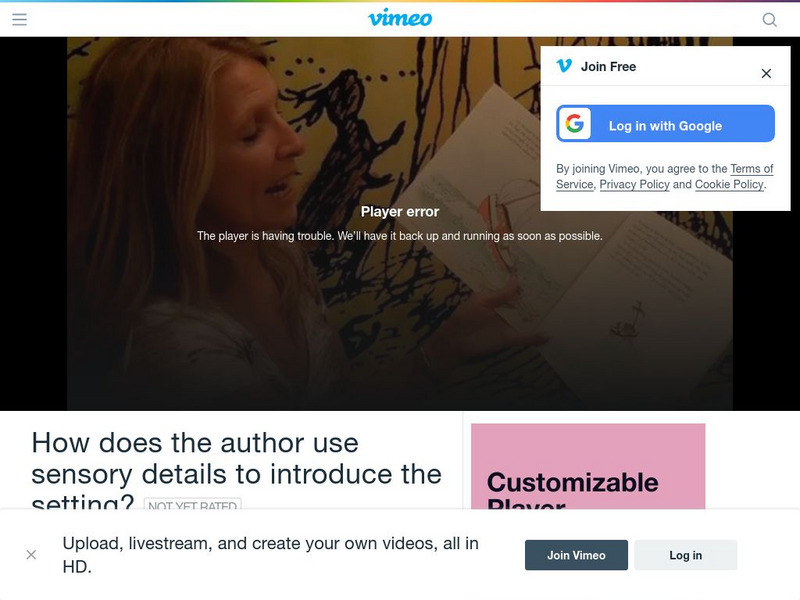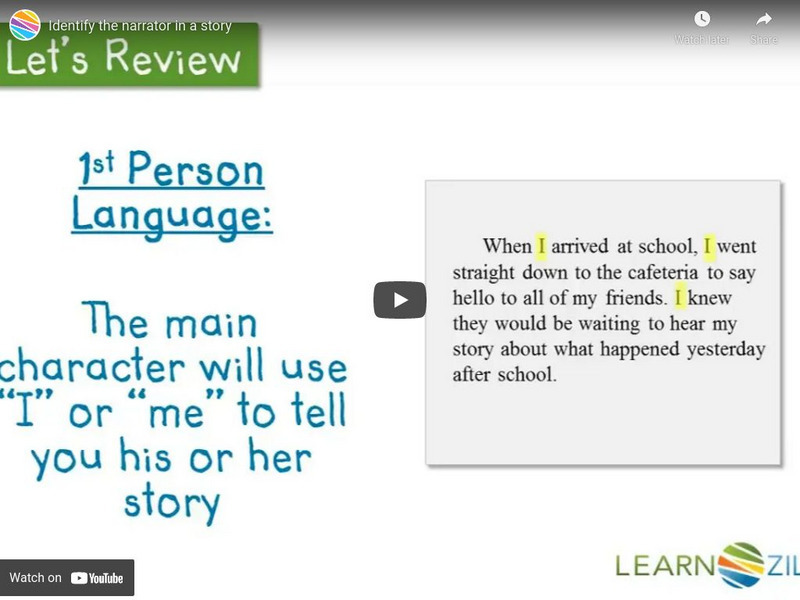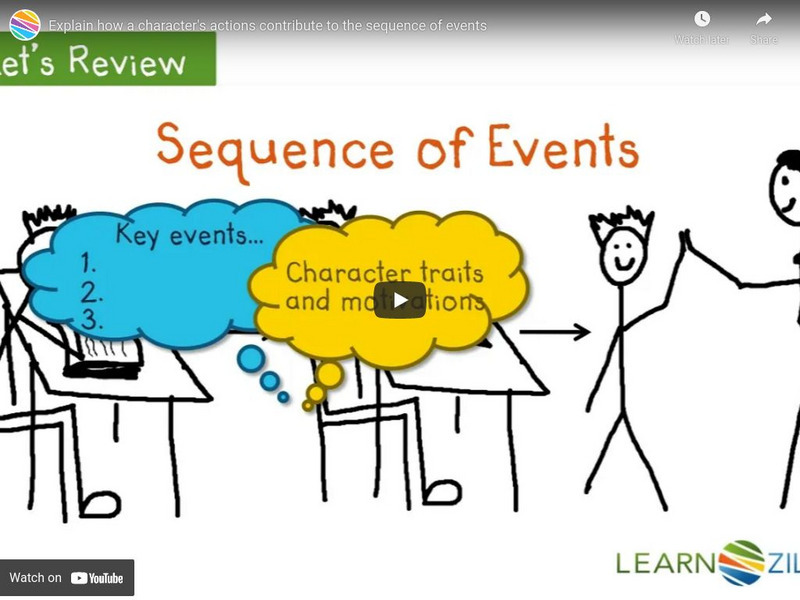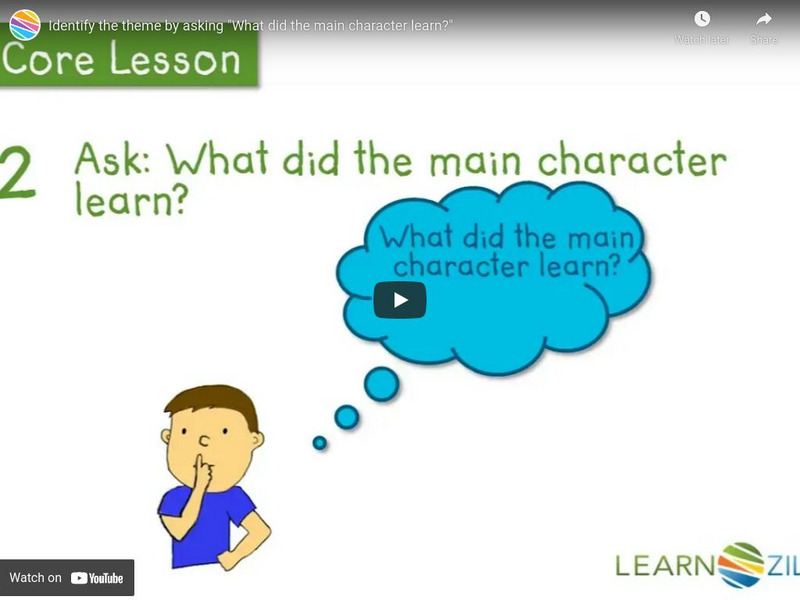Hi, what do you want to do?
Andrews McMeel Publishing
POW! A Peanuts Collection
Make a study of Charles M. Scultz's famous comic strip Peanuts in your language arts class. Class members read and discuss the baseball-themed book POW! A Peanuts Collection. After talking about themes and vocabulary, they complete...
New Zealand Ministry of Education
Te Kete Ipurangi: Thinking and Reading Comprehension
Julie Cowan from Willowbank School explains how she supports students to become strategic, reflective, and metacognitive readers and thinkers.
Creek View Elementary School
Vimeo: How Does the Author Use Sensory Details to Introduce the Setting?
Watch an educator read a picture book, and practice identifying the sensory details as clues about the setting. [1:38]
Imagine Learning Classroom
Learn Zillion: Lesson Video for 'Identify the Narrator in a Story'
In this lesson, you will learn how to identify who is telling a story by looking for clues on the first page. [4:20]
Imagine Learning Classroom
Learn Zillion: Examine How Characters Interact Through Dialogue
In this lesson, you will learn how an author uses dialogue to introduce a story by examining what the characters say to each other and determining how the story is set up. A slideshow and student handouts are available with site login....
Imagine Learning Classroom
Learn Zillion: Video: Explain How Character's Actions Contribute to the Sequence
In this lesson, you will learn to describe how the characters' traits and motivations contribute to the sequence of events by asking, 'What character trait or motivation made this event happen?' [7:58]
Curated Video
You Tube: Narrator Definition, Examples, and Practice
This video and worksheet define narrator and explain how the narrator compares to the author and characters in a story. The video defines each term, then gives excerpts from well-known stories for learners to read and evaluate based on a...
PBS
Pbs: Rounding Up the Rhymes
In this video, effective for engaging students with significant cognitive disabilities, the teacher reads text to identify pairs of rhyming words within the story.
PBS
Pbs: Setting a Purpose for Reading Story Map, Part 3
This video, effective for engaging students with significant cognitive disabilities, demonstrates how to set a purpose then listen to see if you can find the solution.
PBS
Pbs: How Do We Know What the Character Is Feeling
This video, effective for engaging students with significant cognitive disabilities, demonstrates how to identify how the character feels in a story.
PBS
Pbs: Setting a Purpose for Reading Story Map, Part 2
In this video, effective for engaging students with significant cognitive disabilities, students are asked to identify the story elements, specifically the problem in the story.
PBS
Pbs Learning Media: Tea Mology: Helping and Learning From Mistakes
TEAMology characters Harper and Paco lend a little assistance at the local library! Learning to read and learning from mistakes is packaged with fun. [4:57]
Imagine Learning Classroom
Learn Zillion: Add Details About Characters in Narrative Writing
In this lesson, you will learn how to make your story more realistic and exciting by adding details about the characters. [5:38]
Imagine Learning Classroom
Learn Zillion: Lesson Video: Use Technical Vocabulary in Informational Writing
In this lesson, you will learn how to expand the knowledge of an informational text by adding technical vocabulary. [4:41]
Elizabeth Foye
Vimeo: Alliteration
A video [2:01] by Elizabeth Foye defining and giving examples of alliteration.
Other
Youtube: What Is Personification?
Learn about personification and anthropomorphism through explanations and examples in this video. [1:22]
Imagine Learning Classroom
Learn Zillion: Identify the Theme by Asking "What Did the Main Character Learn?"
In this video, you will learn how to learn how to identify the theme in a story by asking "What did the main character learn?" [3:13]
















